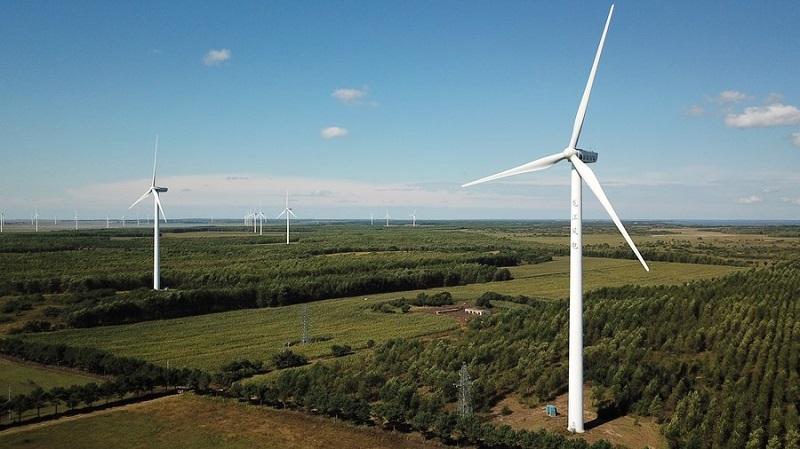Editor’s Note: From the birth of the “Kyoto Protocol” to the conclusion of the “Paris Agreement”, and then to China’s announcement of the carbon peaking and carbon neutrality goals, China has gradually changed from a participant in international climate governance to a leader. What efforts has China made? What are China’s strengths in combating climate change? Dr. Zhang Junjie, director of the Initiative for Sustainable Investment at Duke Kunshan University gives his insights into this global issue in a joint interview with China Focus and Energy Observer, a monthly magazine dedicated to reporting energy industry and sustainable development.
How is your research connected with China’s climate policy? Can you give some examples?
Dr. Zhang Junjie: I am an economist, so all my researches are connected to environmental policy or climate policy one way or another. The first project I started when I moved from UC San Diego to Duke Kunshan university, is on the Paris Agreement. With the support from the national natural science foundation, we are working with the China climate strategic center on what should China do in response to the U.S. withdrawal from the Paris Agreement. Another project, I think that has a significant policy implication, is our work on the top level design of China’s carbon pricing policy. How can we achieve China’s ambitious climate policy target and minimize the negative impact of climate regulation on Chinese economic competitiveness? Carbon pricing is the way to go. This can help us achieve the climate target with the minimum cost.
As an expert in climate change research for more than 20 years, what changes have you seen in China’s climate change efforts?
Dr. Zhang Junjie: We have seen the major changes in 2013 which are mainly through the enforcement of environmental laws, regulations, and rules. Before then, although China had a very complete system of environmental protection, the implementation and the enforcement were poor. Since 2013, and through better enforcement, China has completely changed the landscape of environmental policy. This is the major change for total environment and for climate change.
When President Xi Jinping announced China’s carbon peaking and carbon neutrality goals, the mentality of our attitudes and our strategies towards climate change totally changed. To summarize, the most important change is at the leadership level, since our leadership pays huge attention to our environment, energy, and climate change issues. We see significant changes in every aspect of our economy.
Can you compare China with other countries in addressing the challenge of global climate change? And what is the most significant achievement that China has made?
Dr. Zhang Junjie: First of all, China is the only developing country that made very significant commitment to climate change. China’s climate ambition now is comparable to major developed countries. So in this way, I think the leadership is optimistic that China’s economy will continue to grow to become a high-income country, to become a developed economy. So that’s why we promise that we can achieve carbon neutrality by 2060. Because China will achieve carbon neutrality through further economic development, but not through the contraction of the economy. Second, we are confident that we will come up with the technologies and innovation to achieve that ambitious target. China is in a very good position to deal with the climate change problem through the big renewable energy market and low-carbon innovation.

Aerial photo taken on Sept. 8, 2021 shows a wind farm of the Daqing wind power project in Daqing, northeast China’s Heilongjiang Province. (Photo/Xinhua)
What are the most severe challenges in implementing climate change policies in China? How can we tackle these challenges?
Dr. Zhang Junjie: The major challenge lies on the implementation level. The main priority of local governments is still how to improve the welfare of our province, our prefecture, our county. At the top of that, carbon emission is a constraint. How can we continue to grow our economy with the constraint of carbon emissions?
We just completed a planning document for the strategy of local industrial parks. There are mainly two things. The minus is how to reduce their emission with the lowest cost. The plus is the opportunity in the low carbon transition. In these two approaches, local governments try to balance the “minus” and “plus” to minimize the negative impact of the policy and the requirement from the international supply chain, and to maximize the business opportunities at the same time through the regulation, incentive policies, and through the green finance strategies.
Can you give some economic and policy suggestions for coping with the global climate crisis?
Dr. Zhang Junjie: Climate change is a global problem. Global problems need global efforts. China has been working with many other countries to advance our ambitions in dealing with the climate crisis.
Second, the world is still facing the challenge of continuous economic growth. In particular, for a big country like China, I think this is our top priority to continue to grow our economy. How can we achieve the balance between economic growth and carbon emission reduction? The suggestion from economists is that we can take advantage of market-based climate policy instruments like carbon market, carbon tax. It means that we can achieve our target with the lowest aggregate social cost.
The third approach is that we need to rely on laws and rules. I think a big advantage for China’s policy-making in terms of climate change is that at very early stage, China has renewable energy law. This actually provides a long term commitment to renewable energy. This infuses the confidence to the market. Since China has promised to achieve carbon peaking and carbon neutrality goals, we need a climate change law and the climate change law will help us cement our confidence in low carbon transition.
Reporters of Energy Observer: Jiang Weihuan, Jiang Tao
Editors of Energy Observer: Feng Jie, Jiang Li